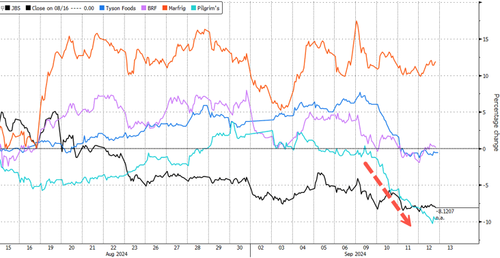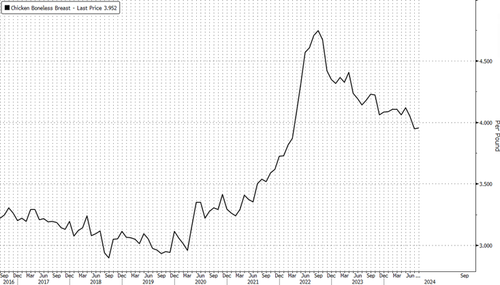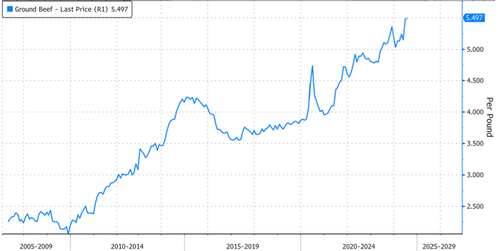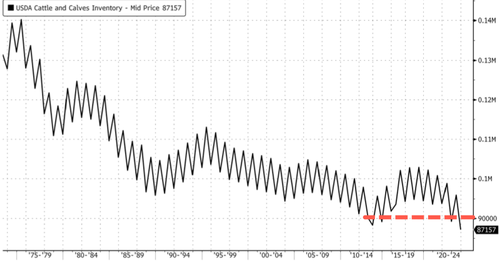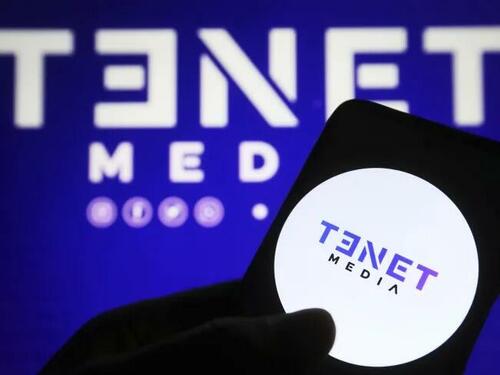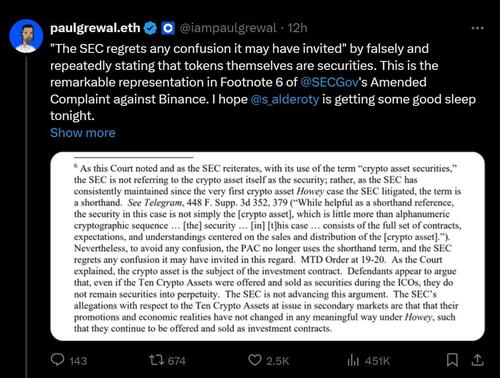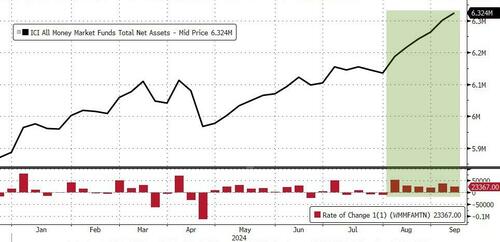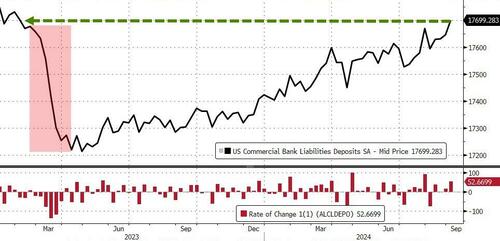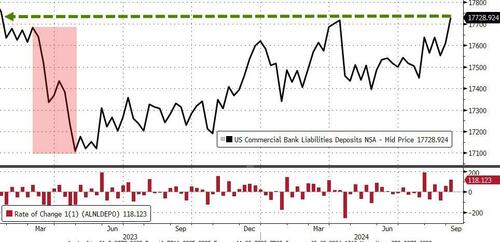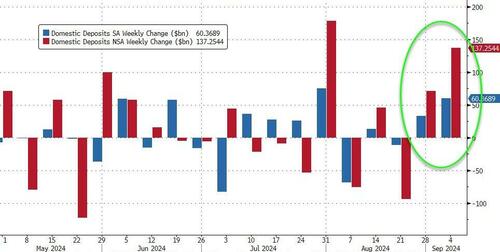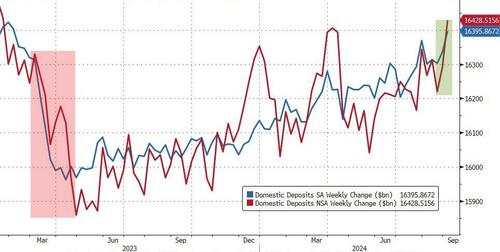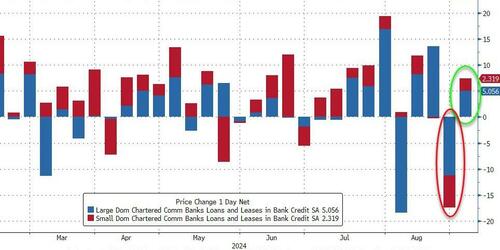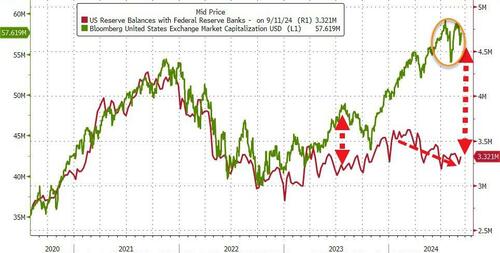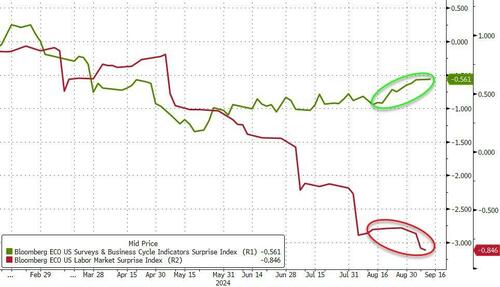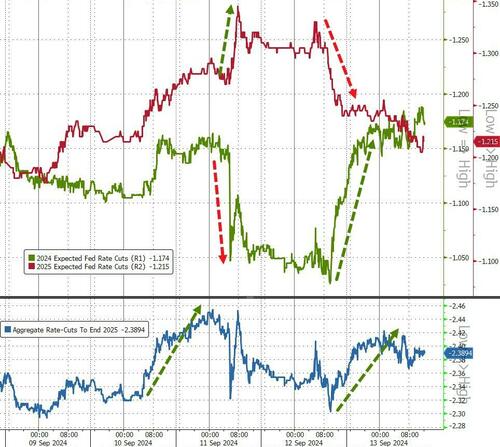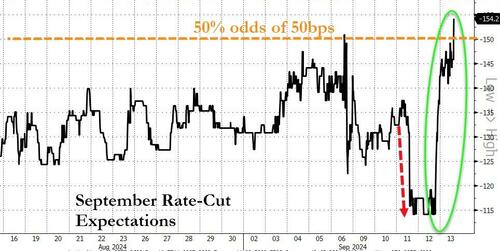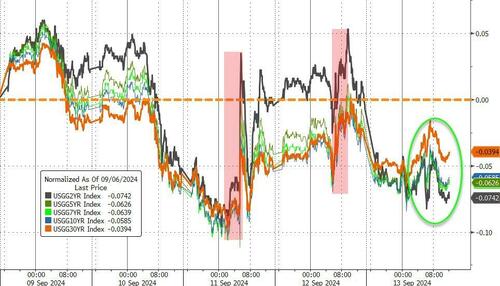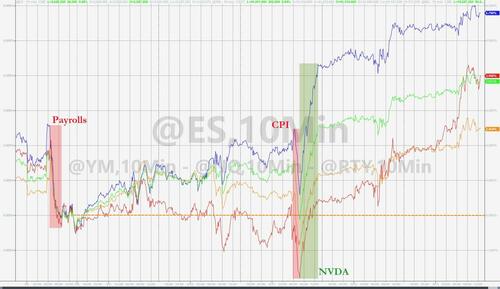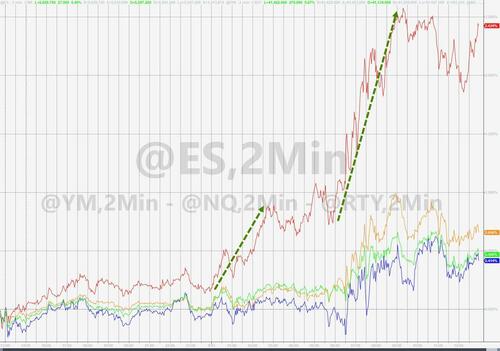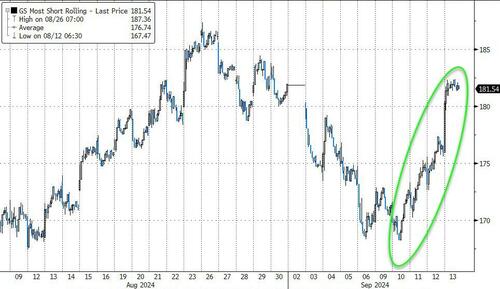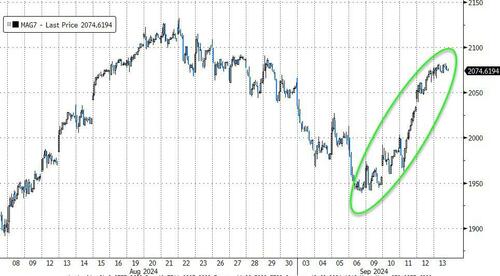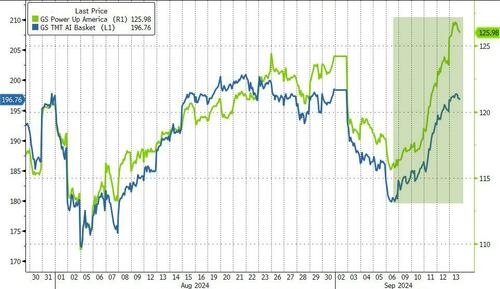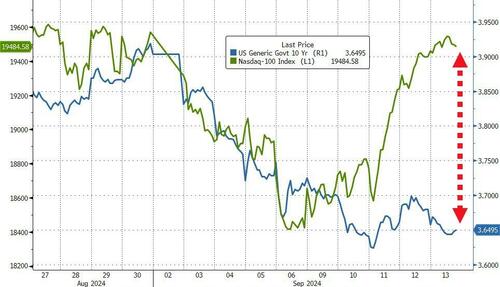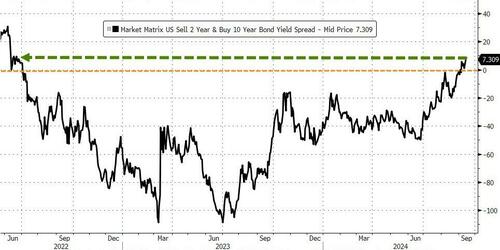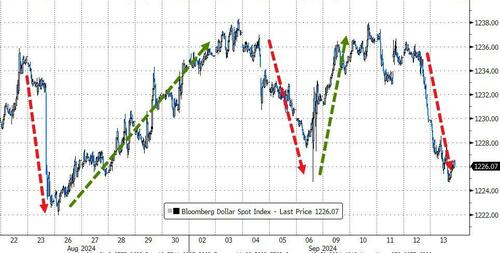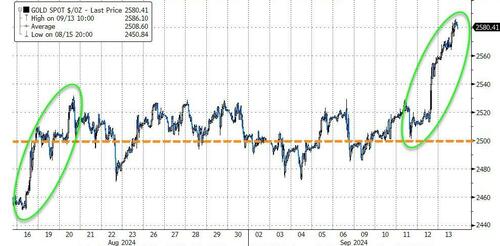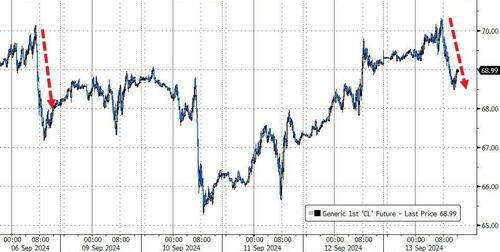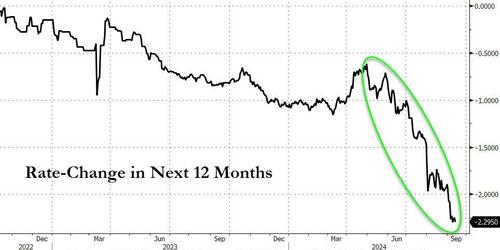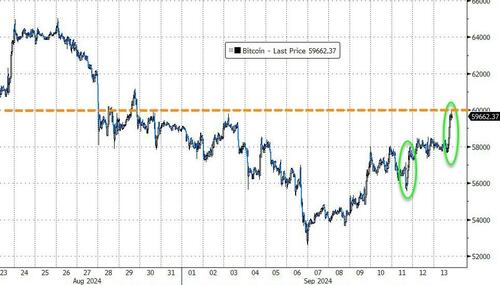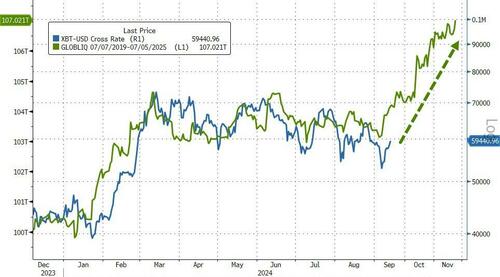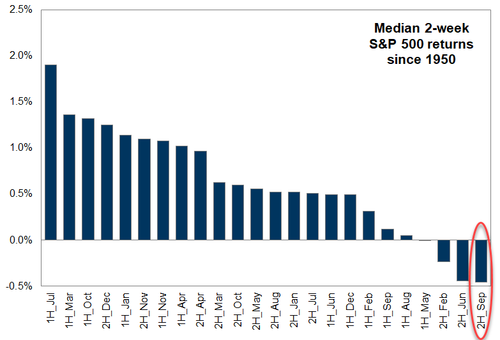Authored by James Howard Kunstler’s substack,
“One debate doesn’t change the issues Americans are facing every day.”
– James Rickards
By now, you’ve probably heard enough debate about The Debate, so I’ll spotlight only a few points everybody else left out. You might know this, but Hollywood plays a larger role in the Kamala campaign than just stuffing the endorsements of celebs such as George Clooney, Taylor Swift, and John Legend into the corporate media tank. In fact, much bigger playas, Jeffrey Katzenberg and Steven Spielberg, are producing and directing things backstage at Kamala Central, so what gets in the Kamala news plays as a Spielberg movie like The Color Purple. Just so you know. . . .
Ms. Harris had the advantage Tuesday night of being able to speak in declarative sentences, while her opponent, Mr. Trump, is given, shall we say, to a more choppy, telegraphic speech delivery. It lent Ms. Harris the appearance of being intelligent. The catch was, everything she said was disingenuous or an outright lie.

One whopper — more significant than you might realize — was her stating that she was in the US Capitol building when the J-6 riot happened. You’d think she’d want to be on-hand there, seeing as a joint session of Congress was about to certify her as the first female veep in US history — a chance to be joyful and shine! But, in fact, at 11:15a.m. on 1/6/21 — hours before protesters breeched the Capitol — Kamala Harris was spirited away a few blocks to 430 South Capitol Street, the headquarters building of the Democratic National Committee, where a pipe bomb (or facsimile of one) had been planted hours before by some DC law enforcement person (Capitol police? FBI? DC Metro Police? A paid “contractor” to the preceding outfits?). The exact identity of the culprit has never been released by the FBI, though they have all perp’s cell phone data and closed circuit TV footage.
The plan, you see, was to disrupt the election certification process underway at mid-day in the House chamber by creating a furor over the discovery of the pipe bomb planted to assassinate veep-elect Kamala Harris — a joint blob / Democratic Party operation.
The pipe bomb ruse, it turned out, was never needed because the FBI-instigated riot at the Capitol created a big disruption just in time to send the politicians scurrying for safety and cancel scrutiny of various state’s electors’ reports.
After that scare, the Senators and Congressmen did, in fact, drop the certification challenge and returned to hurriedly finish the certification process later that night of 1/6/21. The pipe bomb story barely made the news, and the scant news about it was expeditiously memory-holed thereafter. After nearly four years, as averred to above, the FBI has come up with. . . nothing. It is important that you understand just how nefarious your federal agencies are, and how corrupt the news is.
Now, as for the Harris-Trump debate, otherwise, and given the rigged features of the exercise, it’s obvious that Mr. Trump muffed several major scoring opportunities. When Ms. Harris dredged up the notorious hoax about “very fine people on both sides” in Charlottesville, Mr. Trump could have addressed the moderators, David Muir and Linsey Davis and asked them why they did not “fact-check” the utterance, which had been thoroughly debunked by the Left-wing site Snopes.com, advertising itself as “the definitive Internet reference source for researching urban legends, folklore, myths, rumors, and misinformation.” Nor did they fact check the likewise debunked “suckers and losers” hoax about US soldiers supposedly uttered by Mr. Trump at the Normandy D-Day cemetery.
Actually, Muir and Davis “fact-checked” Mr. Trump over thirty times and Ms. Harris hardly at all.
In any case, Mr. Trump blew many other chances to pin Ms. Harris with her own lies and hypocrisies — like, failing to state plainly that in nearly four years she never actually visited the Mexican border (whatever her designated title was: “Border Czar,” “Root Causes Detective”) . . . failing to clarify that the president has been removed from the abortion debate altogether and has no role in telling women what to do with their own bodies under current law. . . that Ms. Harris’s voteless selection as nominee was a paradigmatic affront to “our democracy” that even her own fellow party members ought to recognize . . . that the War in Ukraine was actually started in early 2014 by Barack Obama, Victoria Nuland, and the CIA, not by Mr. Putin . . . and omitting to state that all — every last one — of the 2020 election lawsuits across the nation were dismissed on procedural grounds and not on the merits of their arguments, which were never heard in court. That’s just a short list. It is also rumored that Ms. Harris got the debate questions beforehand, since her husband, Hollywood lawyer Doug Emhoff, is a close friend of Dana Walden, Co-chair of the Disney Corporation board of directors (Disney owns ABC-News.)
Anyway, that much-awaited event is over now and we are into the homestretch of this election. Kamala Harris has still shown no disposition to meet the press, to answer any questions impromptu and unscripted. The voting public seems to be losing patience with that. Her poll numbers are sinking, despite her admirable ability to speak in declarative sentences and lead joyful laugh-fests.
What remains for our sore-beset country beyond that vortex of nefarious blobbery and balloting lawfare is the interesting development that our government is now pressing to commence World War Three before the election can happen. “Joe Biden,” of course, is lately as absent from the public consciousness as Rutherford B. Hayes, but whoever acts in the president’s name these days just gave permission for Ukraine to strike targets inside Russia with long-range missiles. So, far, the UK and the Netherlands have officially jumped in on that decision.
Note that the Ukrainians have no ability to actually do the targeting of said missile themselves, which involves satellite technology, meaning whatever missiles happen to get fired into Russia will be done by NATO personnel. Mr. Putin has made it clear that such action will have consequences. We might infer that means Russia will strike back at some NATO targets. I must imagine his primary target will be NATO headquarters in Brussels. Other targets would probably follow, perhaps even in the USA.
Prepare to duck-and-cover, or possibly to put your head between your legs and kiss your ass goodbye.



